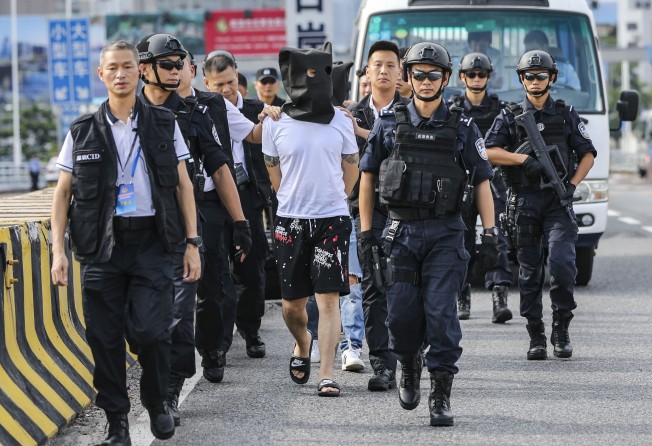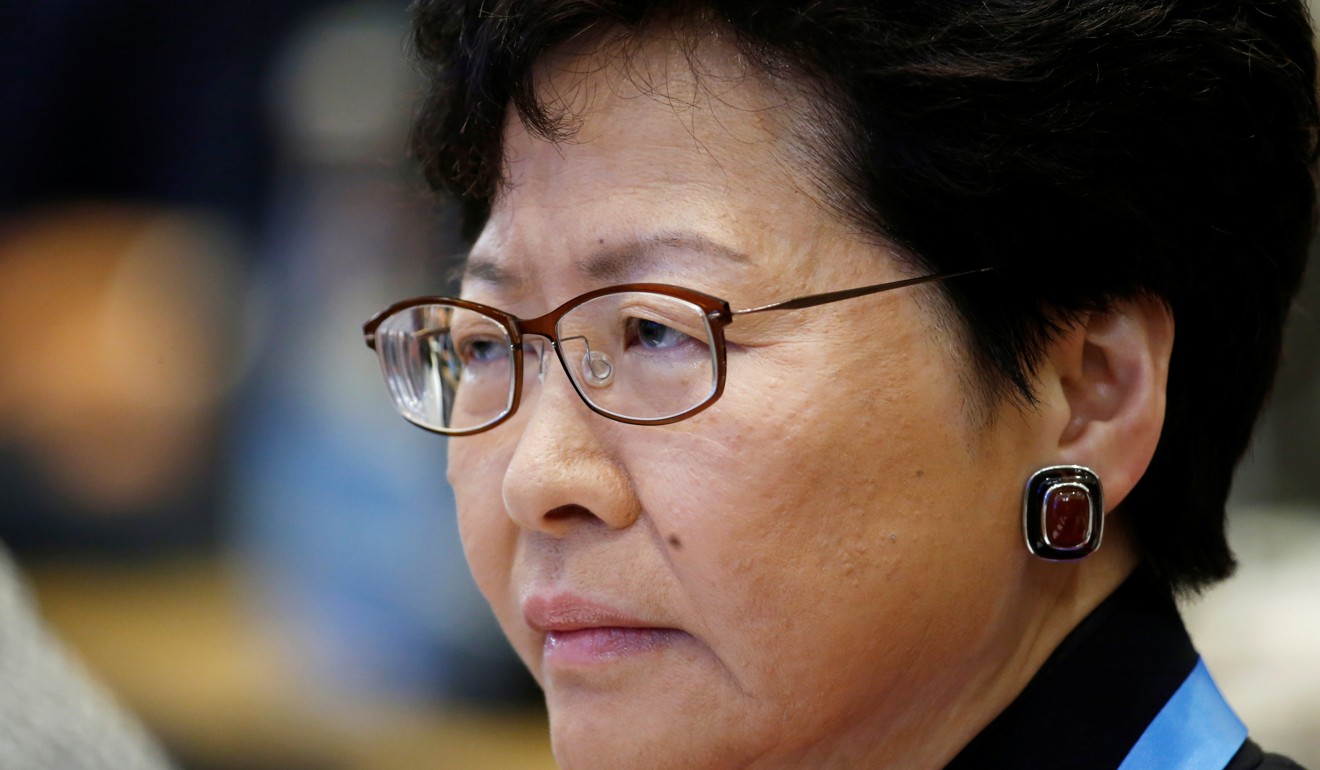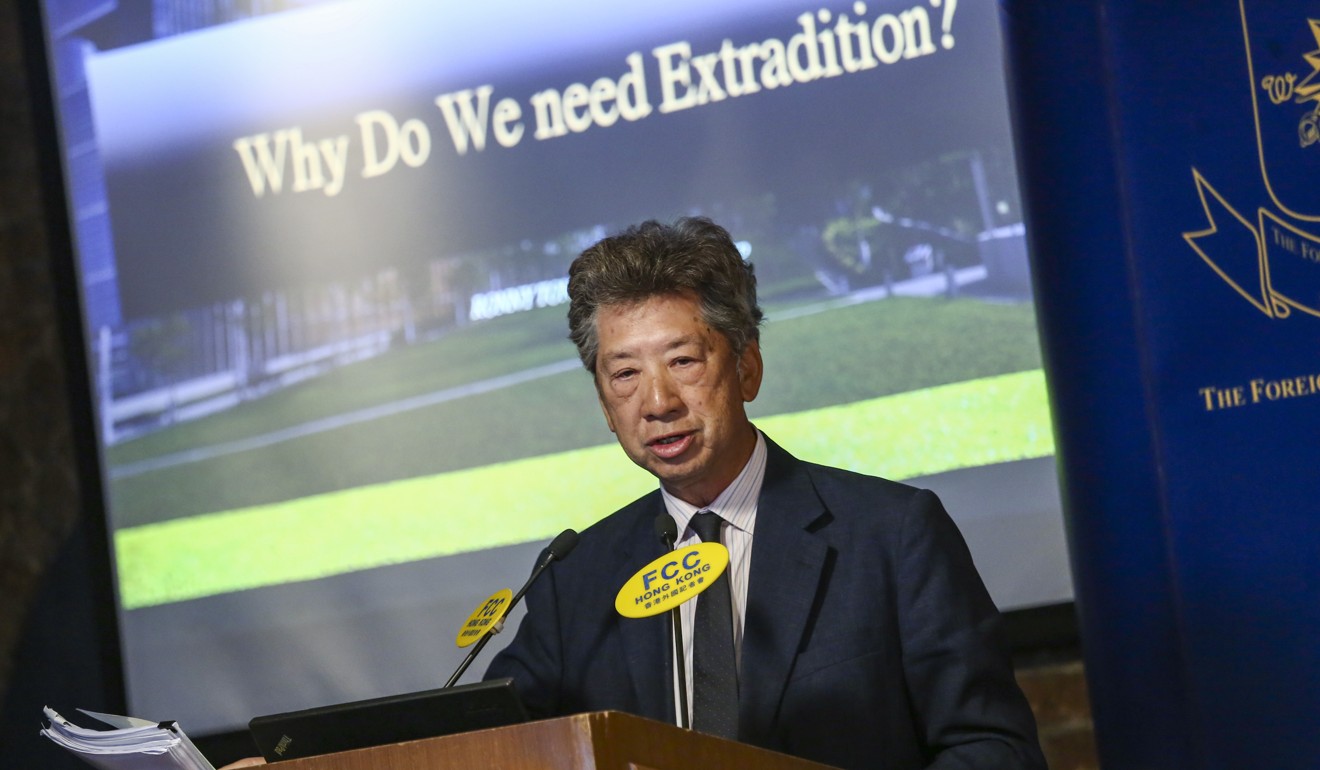
Hong Kong extradition bill could pose risk to US national security and economic interests, warns congressional report
- The US-China Economic and Security Review Commission says the proposed measures mean American citizens could end up being handed over to China for trial
- The report also suggested the bill, if passed, might provide grounds for the US to re-examine elements of its current relationship with Hong Kong

A US congressional body has warned that the Hong Kong government’s proposed extradition bill could create serious national security and economic risks as it will allow Beijing to pressure the city into handing over American citizens under false pretences.
In a critical report issued on Wednesday, the US-China Economic and Security Review Commission said the bill, if passed, would increase Hong Kong’s susceptibility to Beijing’s weak legal system and political coercion, leading to further erosion of the city’s autonomy.
The proposal would allow the city to conduct case-by-case transfers of suspects to places it lacks extradition deals with, including mainland China and Taiwan.
“One major concern is that the bill could allow Beijing to pressure the Hong Kong government to extradite US citizens under false pretences,” the report, written by the commission’s security and foreign affairs policy analyst Ethan Meick, said.

In response, foreign ministry spokesman Geng Shuang said at a daily press conference in Beijing that the commission had “always been biased against China” so its report was not even worthy of a rebuttal.
The report said the bill would “remove legal protections in Hong Kong that preserve its well-regarded rule of law and reputation as a global financial hub”.
It added: “This could affect the estimated 85,000 US citizens and over 1,300 US firms in Hong Kong, about 300 of which base their Asia regional operations in the territory.”
The commission is a congressional body set up in 2000 to advise lawmakers on the national security implications of the US-China trade relationship.
The extradition row erupted in February when Hong Kong leader Carrie Lam Cheng Yuet-ngor’s administration proposed legal amendments, sparked by the case of a local man who is wanted in Taiwan for the murder of his girlfriend.

The bill is strongly opposed by critics who do not trust the legal system in mainland China and fear Hongkongers may be victimised for political reasons.
On Tuesday, the city’s security and justice ministers shot down counterproposals to the government’s bill, saying they were “impracticable” and could not help with transferring murder suspect Chan Tong-kai to Taiwan.
But senior counsel Ronny Tong Ka-wah, a member of Lam’s cabinet, said on Wednesday he believed the government would still consider constructive suggestions.
The commission’s report added that the bill, if passed, might provide grounds for the US to “re-examine important elements of its current relationship with Hong Kong”.
Under the US-Hong Kong Policy Act of 1992, the city is treated separately from the mainland on trade and economic policy issues.
The act also approves the continuation of all treaties signed before 1997 between the US and China, including the US-Hong Kong extradition treaty. Hong Kong, a former British colony, returned to Chinese rule that year.

But this week’s report cited a clause in the act as saying the US president could issue an executive order to suspend it as long as Hong Kong was determined to be not sufficiently autonomous to justify the treaties.
“The recent spike in arbitrary detentions of US, Canadian and other foreign citizens in China on questionable charges with a lack of access to a fair trial and due process highlights the risk the new law could pose to US citizens,” the report said.
“With the heightened potential risks of extradition for US Navy personnel in the territory if detained or arrested during routine port calls, the United States could consider alternative ports for rest and replenishment in the region.”
Hong Kong’s commerce minister Edward Yau Tang-wah downplayed concerns expressed in the report.
“If you say the extradition arrangement will affect the business environment [in Hong Kong] and the situation in other counties, it might be going too far,” he said.
Asked if the government had spent enough time on consulting the public and business sector before tabling the bill, Yau said officials faced a tight time limit as Chan could be released soon. But officials were willing to explain the bill in greater detail, he said.
A government spokesman said the proposed legislative amendments were to protect the law-abiding public in the city.
“The amendments, if passed, will protect business activities from the threat of crime and be conducive to the business environment in [Hong Kong]” a government statement said, adding the move wa about enhancing the city’s capability in dealing with fugitives of serious criminal offences and making it a better partner in the international fight against crime.
Meanwhile, Tong acknowledged there was room for improvement in the mainland’s legal system. But he added that there were provisions for a fair trial in the Chinese constitution, though their implementation had not been ideal.
The US State Department last month said it was “closely monitoring” the extradition controversy, expressing concern about the human rights violations and abuses in China’s legal system.
Additional reporting by Sum Lok-kei